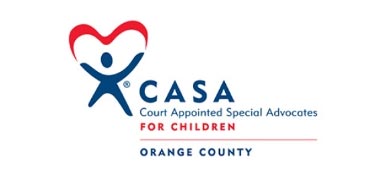
Legally, the term “party” means an individual or entity that agrees to be bound contractually to one or more other individuals or entities. All parties have specified benefits and obligations found in the contract—or a legally enforceable agreement. Read this recent tale from federal court and keep its lessons in mind as you review the business succession documents prepared, whether they are due to a sale, or transition to internal players. It’s important to ensure that you protect your interest in royalties and income going forward and that you always ensure that you have a legally enforceable right in the event of a default or other problem after a deal has been negotiated.
The U.S. Court of Appeals for the Eighth Circuit was asked who the actual “party” was to a contract where one of the original parties assigned all its benefits to another entity. That entity wasn’t substituted or added as a party, and the contract was then terminated by the other party, leaving the assignee at a loss. The recent case, ACI Worldwide Corp. v. Churchill Lane Associates, LLC, No.16-1736 (8th Cir. Jan. 27, 2017) involved a licensing agreement between Nestor and ACI Worldwide Corp. (“ACI”).
Nestor agreed to license its software to ACI, who was contractually obligated to pay royalties to Nestor for the license. It’s key to note that the contract said that: (a) “the Licensing Agreement can be terminated unilaterally by one party if the other party becomes insolvent, transfers all of its assets, or otherwise ceases to conduct business”; (b) ACI would remain liable for royalties respecting “any sublicenses granted by ACI prior to termination”; and (c) “this Agreement may be amended only by the consent of both parties.” Since we’re talking about “parties,” that should be a tip-off to what happened next.
Nestor assigned the royalties from its agreement with ACI to Churchill, and ACI gave its express written consent to the deal. Nestor contracted with Churchill and agreed it wouldn’t amend the agreement without its consent. But Churchill didn’t acquire Nestor’s ownership of the software… and it didn’t become an actual “party” to the agreement. Plus, it didn’t get ACI’s buy-in not to amend the agreement without Churchill’s consent.
Nestor went broke and went into receivership. All its remaining rights in the agreement and the software were sold to another company, ATS. ACI wanted to purchase its rights from Churchill to the royalties under the agreement. When Churchill said no, ACI purchased the rights and interests in the software and Licensing Agreement ATS acquired from Nestor. ACI immediately terminated the agreement, purporting to act as both the Licensor (Nestor/ATS/ACI) and the Licensee (ACI). ACI told Churchill that the agreement was no longer in effect and that Churchill’s rights to the ongoing royalty stream were ended.
Churchill said its consent was needed for any termination or amendment of the agreement. ACI took them to court, seeking a determination that its termination was valid and that it owed no further royalties to Churchill. The District Court found that, because Churchill wasn’t a “full party” to the agreement, Nestor’s insolvency and sale of all its assets allowed ACI to unilaterally terminate its agreement…it didn’t need Churchill’s permission to change the agreement to cut out a clause that provided that the royalty stream from pre-termination sublicenses would continue in favor of Churchill post-termination.
On appeal, the Eighth Circuit agreed that Churchill wasn’t a “full party” to the agreement, but it held that its rights (as an assignee of the royalty stream) couldn’t be changed to cut off Churchill’s post termination royalties arising from sublicenses granted prior to termination. Churchill got some royalties back based on its assignee status and the law requiring a recognized assignee to consent to any modification by the original parties to the contract of the assignee’s rights. Still, Churchill lost all future royalties because Nestor was still the “party” that mattered as far as the termination provision.
The takeaway from this case is when you’re creating a succession plan for your company, and you’re considering an assignment of rights without permitting the assignee to become an additional or substituted “party” to the contract (and without allowing them to review the entire agreement to see what’s needed for the benefits remain effective and directly enforceable by the assignee)—you’re really doing them a disservice and creating financial headaches and heartaches for them in the future.
Churchill should have required that the licensing agreement be amended to add it as a party, detailing that all three parties were required to amend the contract, and that any termination of the agreement based on the insolvency of a party required the consent of the other two parties. That would’ve solidified their position to claim the ongoing royalties. It’s a good reason to work with a succession attorney who can eliminate the issue beforehand.
When considering an assignment of rights in a contract as part of your succession planning, be certain to review the particulars of how those rights are assigned with a qualified succession planning attorney. Talk with an experienced attorney about your options and whether you should draft an amendment to make the assignee the “party” that matters for any subsequent modification or termination of that contract.
Succession planning for your business should start today. Contact NM Law, APC (949-253-0000) to speak to an experienced succession planning attorney about the company you’ve built and your plans for its future.
Disclaimer: This article is intended to provide a general summary of laws in the State of California and should not be construed as a legal opinion nor a complete legal analysis of the subject matter. Noelle Minto is an attorney at NM Law, APC in Tustin, California, a law firm specializing in Trusts & Estates and Business Transactions.
Testimonials
Charities We Support
We dedicate pro bono time, volunteer services, and a percentage of our gross revenue to these organizations. In 2023, we sponsored a refugee family of five to come to the United States and start a new life.
Each year our law firm decides as a group which charities to assist with our time, money, and expertise. Please feel free to click on any of the charities below and make a donation of your own.


















